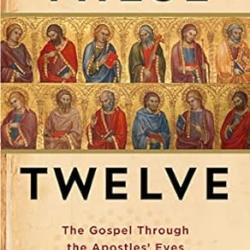Rome, Italy, Jun 5, 2017 / 11:40 am (CNA/EWTN News).- Last week the Order of Malta hosted diplomats and politicians from throughout Europe for a discussion on the effects of violent conflict on children. Participants said the topic is increasingly urgent since children all over the world are growing up surrounded by war. “It’s self-explanatory that the well-being of children is key for the future of humanity, and on the other hand the first victims of conflicts, of disasters, of any kind of turmoil, are the weakest in society, and these are women and children,” Order of Malta Grand Chancellor Albrecht von Boeselager told CNA. Because of this, he said the order tries to concentrate the relief they give to “the weakest...especially, children.” Providing educational opportunities and psychological care for children affected by violent conflict are among the top priorities “because the lack of education and the effect of traumas very often have very long-term effects, and sometimes they turn up only later and have a deteriorating effect on countries.” The Grand Chancellor was one of several European leaders participating in a June 1 conference titled “Children Victims of Armed Violence” commemorating the 75th anniversary of the Lidice massacre in the Czech Republic. Nazi troops stormed the village in 1942 on the order of Adolf Hitler in retaliation for the assassination of Reinhard Heydrich, a high-ranking German official and the main architect of the Holocaust, a few months earlier. Nazi intelligence had erroneously linked the village to Heydrich's assassins. The men were rounded up and killed, and the women and 88 children of the village were gathered and sent to the Chelmno extermination camp, where they were gassed to death. Only a few children considered racially suitable for “Germanization” – the spreading of the German language and culture – survived, and were handed over to SS families. To mark the anniversary, a Czech group came on pilgrimage to Rome last week. They met Pope Francis during his general audience May 31, and later had Mass with Vatican Secretary of State Cardinal Pietro Parolin, who offered the liturgy for children who are victims of armed conflicts. The group then participated in the half-day conference Thursday, followed by a Mass said by Cardinal Dominik Duka of Prague. During the conference, Veronika Rymonova, a survivor of the Lidice massacre, shared her testimony. Although she was just five months at the time of the attack, Rymonova said the soldiers hit her on the face, leaving a scar on her forehead, and tore her earlobes. She was one of the few children to survive, and said that despite the fact she has no memories of her village, she is proud of it because Lidice has become a “symbol against Nazism.” “This unprecedented act of evil and hatred did not remain without a response,” she said, noting that after the massacre “a wave of solidarity arose all over the world,” with countries naming squares, streets, and towns after the village, and even sending donations to survivors. “The fact that I am here today proves the fact that you are not indifferent to the fate of a small village in the heart of Europe, even 75 years after its massacre,” Rymonova said, voicing her hope that what happened in Lidice “would be a warning for the next generation” so that innocent lives “would never become a wasted sacrifice.” In an opening address, Vaclav Kolaja, the Czech deputy foreign minister, told participants that while contemporary European youth have lived in relative peace, armed conflicts “remain part of everyday life in other parts of the world, especially in the Middle East, Africa and Asia.” Armed conflicts are “leaving behind a growing number of victims, devastated countries and wounded families,” he said, noting that the situation “is even worse for the millions of children growing in war or post-war countries.” These children “become the passive witnesses and victims of human cruelties, or accept an active role in armed conflicts, becoming child soldiers,” he said. They also face rape and other forms of abuse. Many times children in conflict areas will lack access to basic food, healthcare, shelter, and education, as well as access to a stable family life. In his comments, Kolaja noted that if war is the only reality children experience growing up, “this naturally shapes the future of the world.” As millions of migrants including unaccompanied minors, continue to pour into Europe, greater concern is mounting not only for how to ensure them safe passage, but also for how to help them integrate into their new societies. In their recent “A child is a child” report, the United Nations Children's Fund (UNICEF) reported that the global number of migrant and refugee children who move alone has reached a record high. At least 300,000 unaccompanied minors and separated children were recorded in around 80 countries for 2015-2016, a massive jump from the 66,000 recorded for 2010-2011. UNICEF Italy Team Leader for Refugee and Migrant Response, Gianfranco Rotigliano also spoke at the conference, telling participants that we are “losing generations” to armed conflicts. “There is no sanctity anymore for hospitals,” he said, noting that they have often become targets, with numerous children among the casualties. He also lamented the fact that children from warring countries often stop going to school, saying: “when children do not go to school, they are out of society, or they become the last part of society. They will not participate in the process of development in their own country and in their own society.” Tomas Bocek, the Council of Europe's Special Representative of the Secretary General for Migration and Refugees, noted that children who grow up with war generally suffer from anger and often drift into criminal activities. Children also simply disappear, many times because of poor organization in refugee camps, or out of fear of deportation, he said, stressing the need to focus on systemic problems “so children do not fall through the net.” Good and effective systems must be put into place, he said, noting that 1 in 3 asylum seekers in Europe is a child. Because trafficking is such a huge risk, especially for unaccompanied minors, Bocek said the rapid identification of victims is essential so that they are accounted for before they disappear. Stories from other panelists during the conference provided a shocking dose of reality in terms of what children go through. One panelist recounted how in a visit to a warring country, she met a child who was waiting for the electricity to come back on after a bombing, not realizing that she had in fact lost her sight. Other stories told of children who suffered from nosebleeds every time a bomb would go off, as well as the cases of children who, after coming home from school to see their homes destroyed and their family killed, wanted to commit suicide so they could be with their relatives. In comments to CNA, Bocek said that of all the discussions taking place right now on global conflicts, the topic of how they affect children is one of the most important because “they are the most vulnerable ones, they are without protection, especially when they are on their own.” One of the “most problematic areas” unaccompanied migrant children face is guardianship and obtaining basic information, he said, explaining that a plan of the Council for Europe provides for age-assessment, family reunification, and integration. Integration, Bocek said, is key, and begins with learning the language, followed by education. “They need to go to school. They not only need it, this is their basic right. So we really have to facilitate this, that all children who are coming are educated and can go to school.” Responding to Pope Francis' many appeals to European leaders to not only be generous in accepting the number of migrants they can reasonably welcome, but also to facilitate their integration, Bocek said he views the Roman Pontiff's words as an encouragement for leaders. “All these pushes, encouragements for our action,” he said, “will help to convince the leaders of European States, not only me, but in Europe, to really think twice and show more solidarity, because now this is really needed most.” Read more


















